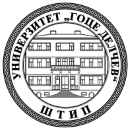ILLEGAL MIGRATION IN MACEDONIA: SOME OBSERVATIONS


Abstract: The issue of illegal migration in the Republic of Macedonia was opened especially with the European migrant crisis of 2015/2016. The large influx of migrants of various origins, coming from Greece, whose destination was not Macedonia but Europe, caused a series of difficulties that affected the overall legal and political system of the country. At the beginning, the Republic of Macedonia did not have a legal solution that would allow the migrants free transit through the territory. However, as the number of illegal migrants began to increase, and the number of accidents involving migrants increased as well, the country’s policies towards migrants slowly began to change. The legal equation that was accepted, was to enable the legal transit of migrants through the territory of the country within a period of 72 hours. This legal provision was in force until the conclusion of the readmission agreement between the EU and Turkey in March 2016, which in turn caused a restriction of entry of migrants to other countries along the Balkan route, which had domino effect and contributed to the closure of the southern border of Macedonia with Greece, and thus the closure of the Balkan route. In the same period, the Law on Asylum and Temporary Protection was amended in the Republic of Macedonia, whereby Article 10-a of the Law introduced a list of third countries of safe origin, which included all EU, NATO and EFTA countries. Based on this change, illegal migrants who enter the Republic of Macedonia and come from one of these countries, without considering their right to asylum, will be subject to repatriation to the country of origin. These changes helped to stem the legal influx of migrants and in some ways put an end to the European migrant crisis, but on the other hand, redefined the routes of illegal migration and smuggling of migrants.
The paper first will explore the established framework and mechanisms for dealing with illegal migration in Macedonia in terms of bilateral and multilateral cooperation that the country achieves with the European Union, but also with individual European countries, and the focus will be on readmission agreements and their effectiveness in the readmission of third-country migrants. And then to move on to the inevitable criminal-legal side effects and crimes committed while trying to transit through the country, which have international proportions and affect not only the countries in the region, but much wider. Criminological processing will only contribute to laying the theoretical basis for creating a strategy to prevent future similar or identical scenarios.
Keywords: migrants, readmission agreements, smuggling, European migrant crisis
